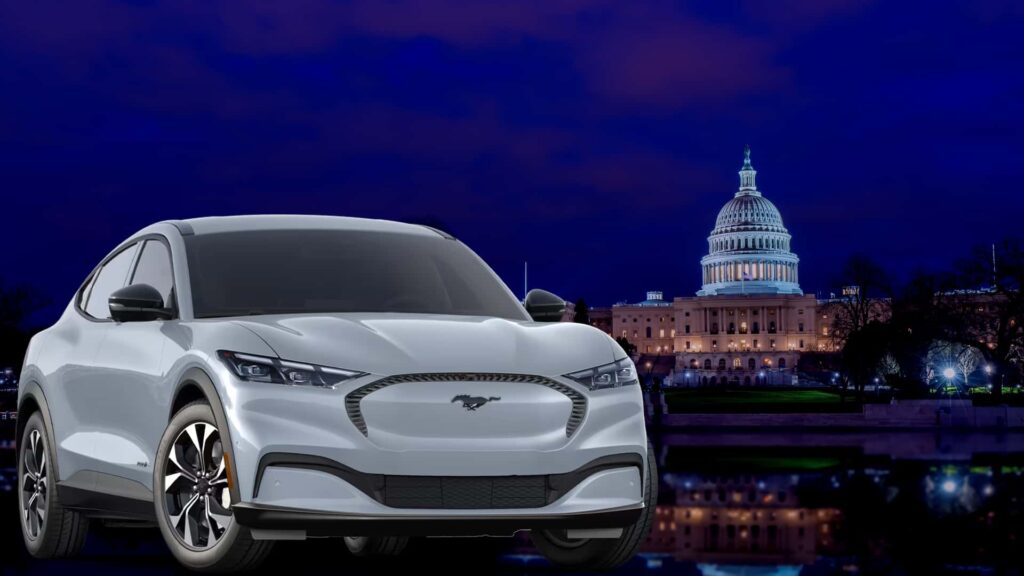The recent actions taken by the U.S. Congress have dealt a significant blow to America’s progress towards a cleaner-energy future. In a move to push forward President Donald Trump’s agenda of tax cuts and regulatory dismantling, both houses of Congress have voted on measures that could severely impede the growth of electric cars in the country.
The House passed a bill that aims to end tax credits for clean energy, including electric-vehicle tax credits. This decision comes as a major setback for the electric vehicle industry, potentially hindering the adoption of EVs in the market. Additionally, the Senate voted to revoke California’s waiver that allows the state to set its own emissions standards, which are followed by several other states. This move could have a chilling effect on the growth of electric vehicles, especially in California, one of the largest markets for new cars in the country.
The House bill, known as the “One, Big, Beautiful Bill,” not only eliminates tax credits for purchasing or leasing new EVs but also imposes new taxes on EV and hybrid owners. These provisions are expected to make it more expensive to own and operate electric vehicles, further discouraging consumers from making the switch to cleaner transportation options.
Many advocates for clean energy and electric vehicles have expressed their concerns over the potential impacts of these actions. Ben Prochazka, the executive director of the Electrification Coalition, warned that the bill could jeopardize jobs in the clean energy sector and undermine efforts to secure a reliable supply of critical minerals for EV production.
The decision to repeal the California emissions waiver has also raised alarm among EV supporters. Automakers, while supportive of a national emissions standard, have raised concerns about the impact of this move on the industry’s growth and competitiveness. The National Automobile Dealers Association (NADA) applauded the decision, citing concerns about consumer choice and vehicle prices.
Despite record EV sales in 2024, the removal of incentives and penalties for EV adoption is likely to slow the growth of electric vehicles in the market. The International Energy Agency now projects a lower share of EVs in new-car sales by 2030, reflecting the challenges posed by the recent legislative actions.
The debate over clean energy policies and the future of electric vehicles has divided lawmakers and industry stakeholders. While some argue for a more aggressive approach to catch up with China in the EV market, others believe that America should focus on its strengths in fossil-fuel power. The recent decisions by Congress reflect a shift towards the latter, raising concerns about the country’s ability to compete in the global EV market.
In conclusion, the recent actions taken by the U.S. Congress have dealt a significant blow to America’s clean-energy future. The decisions to end tax credits for EVs and revoke California’s emissions waiver could have far-reaching implications for the electric vehicle industry and the country’s competitiveness in the clean energy sector. It remains to be seen how these changes will impact the future of electric vehicles in the United States.

